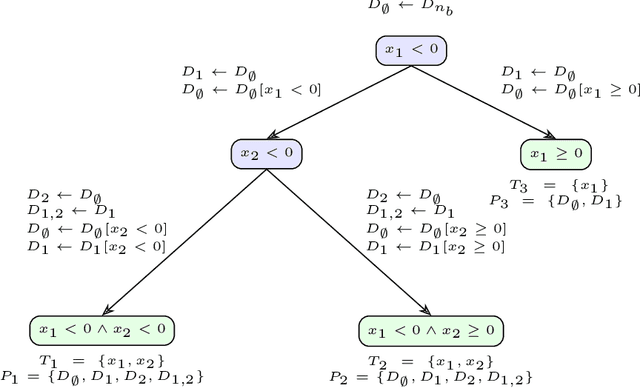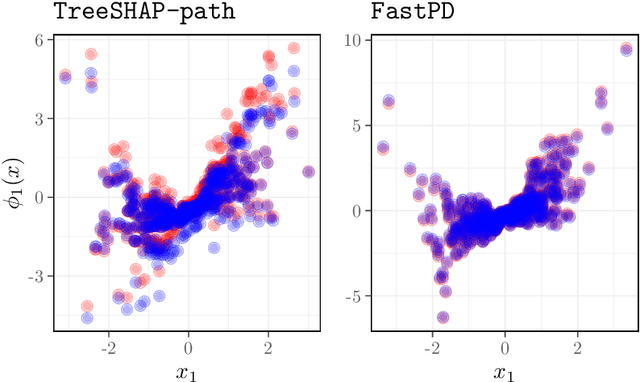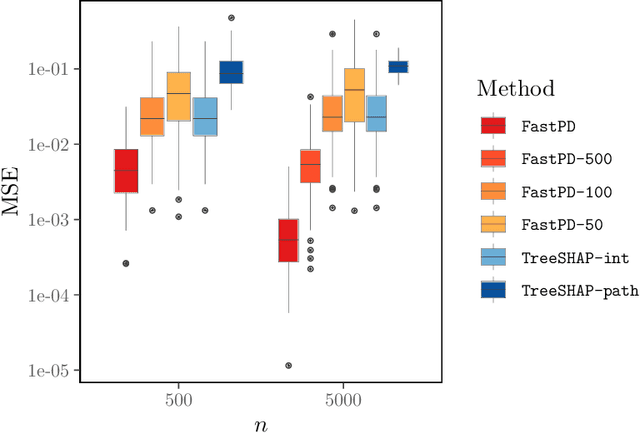Tessa Steensgaard
Fast Estimation of Partial Dependence Functions using Trees
Oct 17, 2024



Abstract:Many existing interpretation methods are based on Partial Dependence (PD) functions that, for a pre-trained machine learning model, capture how a subset of the features affects the predictions by averaging over the remaining features. Notable methods include Shapley additive explanations (SHAP) which computes feature contributions based on a game theoretical interpretation and PD plots (i.e., 1-dim PD functions) that capture average marginal main effects. Recent work has connected these approaches using a functional decomposition and argues that SHAP values can be misleading since they merge main and interaction effects into a single local effect. A major advantage of SHAP compared to other PD-based interpretations, however, has been the availability of fast estimation techniques, such as \texttt{TreeSHAP}. In this paper, we propose a new tree-based estimator, \texttt{FastPD}, which efficiently estimates arbitrary PD functions. We show that \texttt{FastPD} consistently estimates the desired population quantity -- in contrast to path-dependent \texttt{TreeSHAP} which is inconsistent when features are correlated. For moderately deep trees, \texttt{FastPD} improves the complexity of existing methods from quadratic to linear in the number of observations. By estimating PD functions for arbitrary feature subsets, \texttt{FastPD} can be used to extract PD-based interpretations such as SHAP, PD plots and higher order interaction effects.
 Add to Chrome
Add to Chrome Add to Firefox
Add to Firefox Add to Edge
Add to Edge